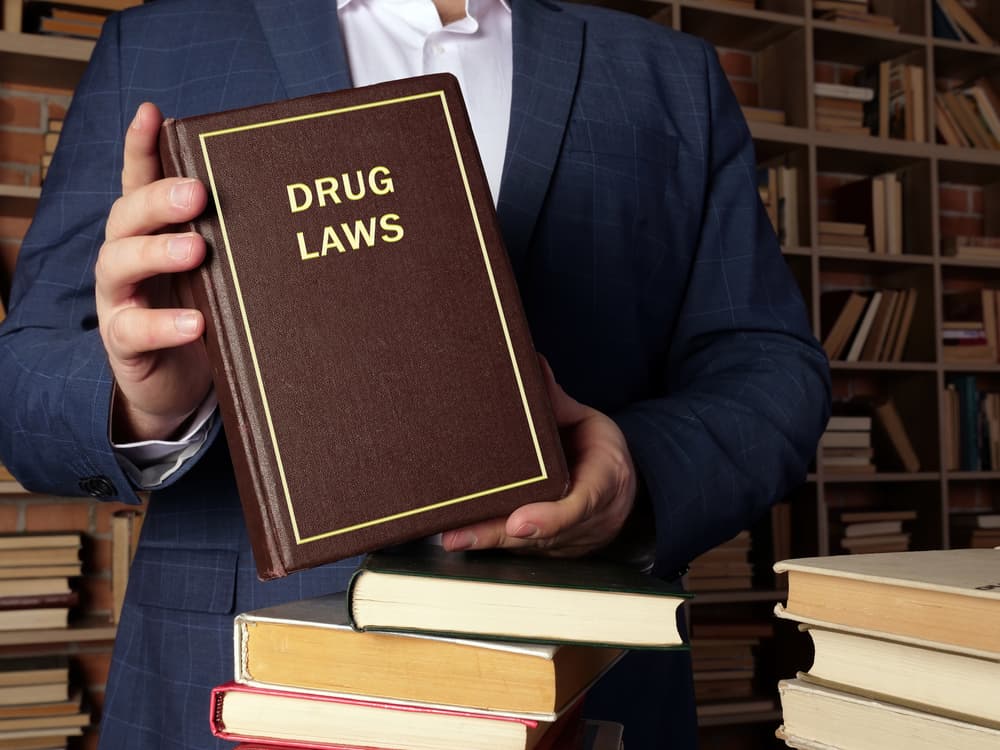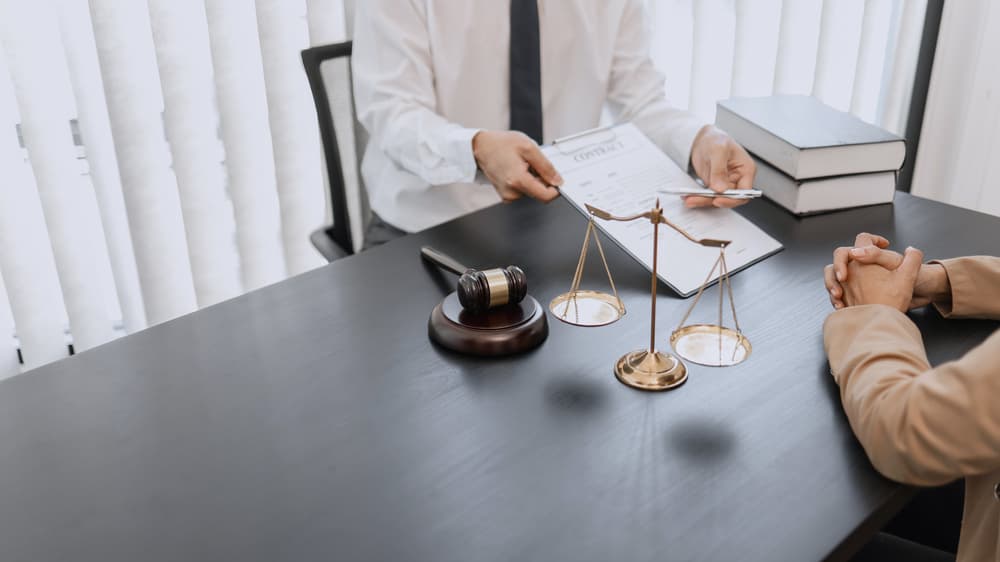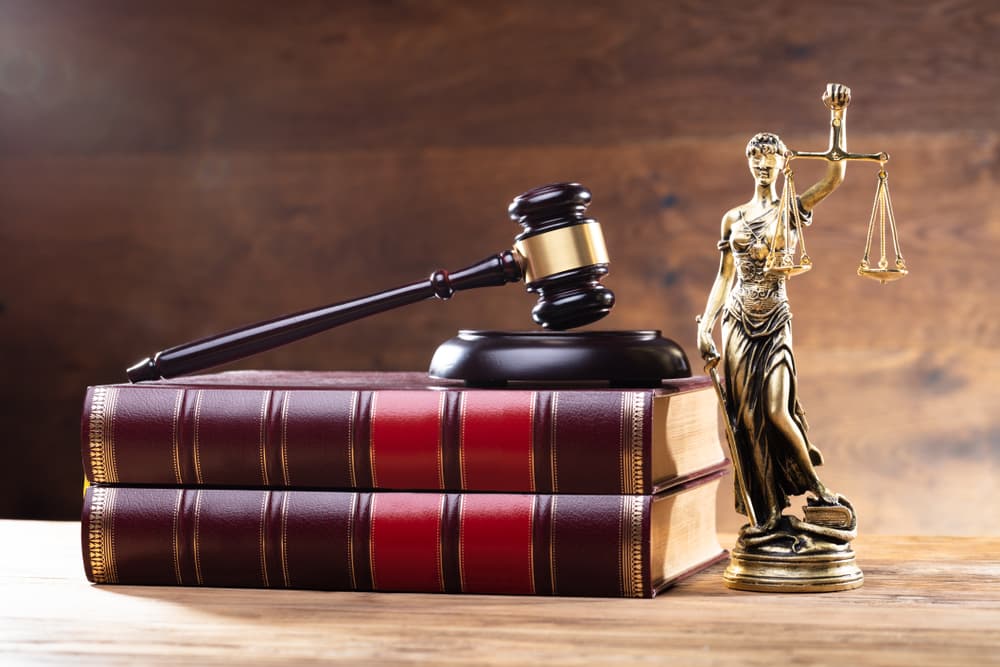The weight of a drug possession charge in Texas can feel crushing. The state's stringent drug laws and hefty penalties mean that even minor possession charges can cast long shadows over your future.
But don't lose hope—whether you're facing a misdemeanor or a felony charge, this comprehensive resource offers valuable insights and practical advice to protect your rights and safeguard your future.
If you or someone you care about is facing drug possession allegations, don't delay in seeking professional help. The Law Offices of David M. White are ready to stand by your side as your drug possession lawyer. Our experienced team knows Texas drug laws inside and out, and we're prepared to build a strong defense tailored to your unique situation.
Call us today at (325) 437-3311 for a consultation and take the first crucial step towards securing a positive outcome. With experienced legal support, you can face these challenges head-on and work towards the best possible resolution.
Understanding Texas Drug Possession Laws

Texas has some of the strictest drug laws in the United States. Drug possession charges in Texas vary based on the type and amount of the controlled substance found in your possession.
These charges can range from a Class B misdemeanor to a first-degree felony, with penalties increasing significantly for larger quantities and more dangerous substances.
Classification of Controlled Substances (Penalty Groups)
Texas categorizes controlled substances into different penalty groups, each with its own set of penalties:
- Penalty Group 1: Includes highly addictive and dangerous drugs like cocaine, heroin, and methamphetamine. Possession of these drugs often leads to the most severe penalties.
- Penalty Group 1-A: Primarily includes LSD. Like Penalty Group 1, possession can result in harsh penalties due to its high potential for abuse.
- Penalty Group 2 and 2-A: Includes hallucinogens such as MDMA (Ecstasy) and synthetic cannabinoids. These substances are less dangerous than those in Group 1 but still carry significant penalties.
- Penalty Group 3: Includes prescription drugs like Valium and Xanax that have potential for abuse but also accepted medical uses.
- Penalty Group 4: Covers other prescription medications with a low potential for abuse but still controlled under the law.
Penalties for Drug Possession
Penalties for drug possession in Texas can include:
- Misdemeanor Charges: Usually involve small amounts of drugs like marijuana (less than two ounces) and can result in up to 180 days in jail and fines up to $2,000.
- Felony Charges: For larger quantities or more dangerous substances, penalties can include multiple years in state prison and fines up to $10,000 or more. The exact penalty depends on the drug's quantity and classification.
Essential Steps After Arrest
We know how terrifying it can be after an arrest for drug possession, but taking the right steps immediately after can significantly impact the outcome of your case.
Here's what you should do:
Immediate Actions Post-Arrest
- Invoke Your Right to Remain Silent: After your arrest, refrain from discussing your case with anyone other than your lawyer. Opposing parties will take anything you say and use it against you in court.
- Request an Attorney: Clearly state that you want a lawyer. This will halt any further police questioning until your attorney is present. The sooner you have legal representation, the better your chances of mounting a successful defense.
- Document the Incident: Write down everything you remember about your arrest, including the events leading up to it, the arrest itself, and any interactions with law enforcement. These details can be vital for your defense.
Common Defenses in Drug Possession Cases
In any criminal case, including drug possession, the prosecution must prove beyond a reasonable doubt that you committed the crime. This means they must present clear and convincing evidence that leaves no room for reasonable doubt about your guilt. If your experienced lawyer can create doubt about any element of the prosecution's case, you cannot be convicted.
Here are some of the most effective defenses that your attorney might employ:
Illegal Search and Seizure
The Fourth Amendment protects you against unreasonable searches and seizures. If law enforcement officers obtained evidence through an illegal search, that evidence could be deemed inadmissible in court.
This could include situations where the police:
- Lacked a Valid Warrant: If authorities conducted the search without a warrant or a valid exception to the warrant requirement, any evidence found might be inadmissible.
- Legality of the Stop and Search: Your lawyer will examine whether the police had probable cause to stop and search you. Any illegal actions by law enforcement can lead to the suppression of evidence.
- Conducted an Unreasonable Search: Even with a warrant, the scope and manner of the search must be reasonable. Overstepping these boundaries can result in evidence being thrown out.
Lack of Intent or Knowledge
For a conviction, the prosecution must prove that you knowingly and intentionally possessed the controlled substance.
Several defenses can challenge this element:
- Unknowing Possession: If you were unaware of the presence of the drugs, you might not be liable. For instance, if someone else placed the drugs in your belongings without your knowledge, this defense might apply.
Drugs Belong to Someone Else
If the drugs found were not yours, you could argue that you had no knowledge of their presence.
This defense is particularly relevant in situations where:
- Multiple People Have Access: If authorities found the drugs in a common area accessible to several people, it might be challenging for the prosecution to prove that they were yours.
The Substance Is Not a Controlled Drug
The prosecution must prove that the substance in question is indeed a controlled substance.
Your attorney can challenge this by:
- Questioning Lab Results: Mistakes in lab testing or mishandling of evidence can be grounds for dismissal.
Procedural Errors by Law Enforcement
Any procedural mistakes made by the police during your arrest or the handling of evidence can be crucial in your defense:
- Failure to Mirandize: If the officers failed to read you your Miranda rights, the court might not admit any statements you made.
- Violation of Your Rights: Your attorney can use any other violation of your legal rights during the arrest process to challenge the charges against you.
Witness Testimony and Cross-Examination
Witnesses can play a crucial role in your defense. Your lawyer will:
- Identify Key Witnesses: Find and interview witnesses who can support your version of events or discredit the prosecution's claims.
- Prepare Witnesses for Testimony: Ensure that witnesses will provide clear, consistent, and credible testimony in court.
- Cross-Examine Prosecution Witnesses: Challenge the credibility and reliability of the prosecution's witnesses, aiming to highlight inconsistencies or biases in their testimonies.
What the Legal Process Looks Like
Pre-Trial Motions and Hearings
Pre-trial motions are legal requests filed before the trial begins. They can resolve certain issues in advance and shape the course of the trial.
Common pre-trial motions in drug possession cases include:
- Motion to Suppress Evidence: This motion aims to exclude evidence obtained through illegal searches or other violations of your rights. If successful, it can weaken the prosecution's case significantly.
- Motion to Dismiss: Your lawyer may file this motion if there are grounds to argue that the court should dismiss the charges due to lack of evidence or other procedural errors.
Plea Bargaining Options
Plea bargaining involves negotiating with the prosecution to reach a mutually acceptable resolution without going to trial. This can reduce charges or penalties.
Key aspects of plea bargaining include:
- Charge Reduction: Negotiating to reduce the charges from a felony to a misdemeanor, which carries lighter penalties.
- Sentence Reduction: Agreeing to plead guilty in exchange for a reduced sentence, such as probation instead of jail time.
Trial Process
If your case goes to trial, it will involve several stages:
- Jury Selection: Both the defense and prosecution will participate in selecting impartial jurors.
- Opening Statements: Each side presents an overview of their case to the jury.
- Presentation of Evidence: The prosecution and defense present their evidence and witnesses. Your lawyer will cross-examine prosecution witnesses to challenge their credibility.
- Closing Arguments: Both sides summarize their cases, highlighting key points and urging the jury to deliver a favorable verdict.
- Jury Deliberation and Verdict: The jury deliberates and then delivers a verdict of guilty or not guilty.
Potential Sentencing and Appeals
If you are found guilty, the judge will determine your sentence based on various factors, including the severity of the offense and your criminal history.
Possible sentences include:
- Fines: Monetary penalties that vary depending on the offense.
- Probation: Supervised release with specific conditions.
- Imprisonment: Jail or prison time, which can range from a few months to several years, depending on the charges.
If the verdict is unfavorable, you have the right to appeal. The appeals process involves:
- Filing a Notice of Appeal: This must occur within a specific timeframe after the verdict.
- Appellate Review: An appellate court reviews the trial record to identify legal errors that could have affected the outcome.
- Possible Outcomes: The appellate court may uphold the conviction, reverse it, or order a new trial.
The Role of a Criminal Defense Lawyer
Having a skilled criminal defense lawyer can be the difference between a conviction and a favorable outcome. Here’s how they can assist you throughout the process:
Case Assessment and Strategy Development

From the moment you engage a criminal defense lawyer, they will start by thoroughly assessing your case. This involves:
- Reviewing Evidence: Examining all the evidence against you, including police reports, witness statements, and any physical evidence.
- Identifying Weaknesses: Finding inconsistencies or errors in the prosecution’s case that your lawyer can exploit for your defense.
- Developing a Defense Strategy: Crafting a tailored strategy that addresses the specific details of your case and leverages identified weaknesses.
Legal Guidance and Support Throughout the Process
Navigating the legal system can be complex and intimidating. Your lawyer will:
- Explain Your Rights: Ensure you understand your legal rights and options at every stage of the process.
- Provide Ongoing Advice: Offer continuous guidance on the best course of action, whether negotiating a plea deal or proceeding to trial.
- Handle Legal Documentation: Take care of all necessary legal paperwork and filings, ensuring everything is submitted correctly and on time.
Negotiating Plea Deals
In many cases, your lawyer can negotiate a plea deal with the prosecution. This can result in:
- Reduced Charges: Lowering the severity of the charges against you, such as reducing a felony to a misdemeanor.
- Lighter Sentences: Negotiating for lesser penalties, such as probation instead of jail time.
Court Representation
If your case goes to trial, your lawyer will represent you in court, providing several crucial services:
- Arguing Motions: Presenting pre-trial motions to suppress evidence or dismiss charges.
- Cross-Examination: Challenging the prosecution’s witnesses to weaken their testimony.
- Presenting Your Defense: Introducing evidence and witnesses that support your case and casting doubt on the prosecution’s narrative.
- Closing Arguments: Summarizing the defense case and urging the jury to deliver a favorable verdict.
Post-Trial Support

Even after the trial, your lawyer continues to play a vital role:
- Filing Appeals: If the verdict is unfavorable, your lawyer can file an appeal, seeking to overturn the conviction or reduce the sentence.
- Advising on Future Steps: Offering guidance on any further legal actions you can take, such as seeking expungement of your record.
Win Your Case with David H. White
With the right strategy and legal support, you can significantly improve your chances of a favorable outcome. That’s where we come in. Our team of criminal defense attorneys can protect your rights and provide the best possible defense. With our extensive experience in Texas drug laws, we'll fight tirelessly for your case.
If you're facing drug possession charges, don't wait. Contact the Law Offices of David M. White today at (325) 437-3311 for a confidential consultation. Let our experienced team guide you through this challenging time and help secure your future.
